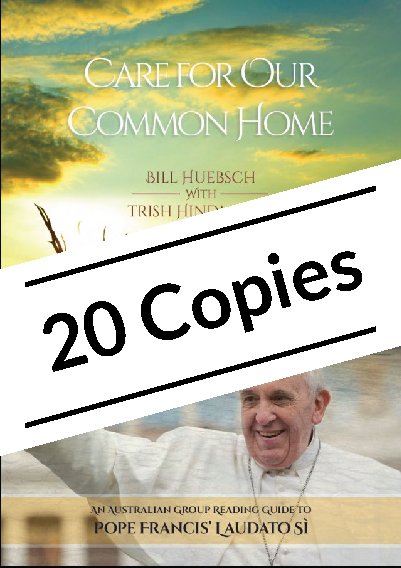Table of Content
- For Our Common Home: Process-Relational Responses to Laudato Si' by Cobb, Joh...
- Laudato Si’: On Care For Our Common Home
- Dive into God's Word
- On Care for Our Common Home, Laudato Si' by Catholic Church (author), Sean Mc...
- On Care for Our Common Home; Laudato Si' - 1593252838, paperback, Pope Francis
- Laudato Si -- On Care for Our Common Home Paperback Francis I
Many people today sense a profound imbalance which drives them to frenetic activity and makes them feel busy, in a constant hurry which in turn leads them to ride rough-shod over everything around them. This too affects how they treat the environment. An integral ecology includes taking time to recover a serene harmony with creation, reflecting on our lifestyle and our ideals, and contemplating the Creator who lives among us and surrounds us, whose presence “must not be contrived but found, uncovered”. Here, continuity is essential, because policies related to climate change and environmental protection cannot be altered with every change of government. Results take time and demand immediate outlays which may not produce tangible effects within any one government’s term. That is why, in the absence of pressure from the public and from civic institutions, political authorities will always be reluctant to intervene, all the more when urgent needs must be met.
All Christian communities have an important role to play in ecological education. It is my hope that our seminaries and houses of formation will provide an education in responsible simplicity of life, in grateful contemplation of God’s world, and in concern for the needs of the poor and the protection of the environment. Because the stakes are so high, we need institutions empowered to impose penalties for damage inflicted on the environment.
For Our Common Home: Process-Relational Responses to Laudato Si' by Cobb, Joh...
This was due primarily to concerns about Malthusian-derived concepts about population control and how that related to Catholic moral teachings on aspects such as artificial contraception and abortion, as emphasised in Pope Paul VI's encyclical Humanae Vitae. Martin Palmer, an Anglican who was previously the Secretary General of the Alliance of Religions and Conservation claims that Francis' encyclical "really helped, but now unfortunately, people in the Vatican still fear they will be attacked or compromised over this." The title of the social encyclical is a Central Italian phrase from Francis of Assisi's 13th-century "Canticle of the Sun" , a poem and prayer in which God is praised for the creation of the different creatures and aspects of the Earth.
Society, through non-governmental organizations and intermediate groups, must put pressure on governments to develop more rigorous regulations, procedures and controls. Unless citizens control political power – national, regional and municipal – it will not be possible to control damage to the environment. Local legislation can be more effective, too, if agreements exist between neighbouring communities to support the same environmental policies. When we speak of the “environment”, what we really mean is a relationship existing between nature and the society which lives in it.
Laudato Si’: On Care For Our Common Home
The principles which it proclaimed still await an efficient and flexible means of practical implementation. Together with the patrimony of nature, there is also an historic, artistic and cultural patrimony which is likewise under threat. This patrimony is a part of the shared identity of each place and a foundation upon which to build a habitable city. It is not a matter of tearing down and building new cities, supposedly more respectful of the environment yet not always more attractive to live in.
On the other hand, the forms of corruption which conceal the actual environmental impact of a given project, in exchange for favours, usually produce specious agreements which fail to inform adequately and to allow for full debate. The ultimate destiny of the universe is in the fullness of God, which has already been attained by the risen Christ, the measure of the maturity of all things. Here we can add yet another argument for rejecting every tyrannical and irresponsible domination of human beings over other creatures.
Dive into God's Word
This path requires an ever-closer collaboration among all churches in their commitment to care for creation. Together, as communities, churches, cities and nations, we must change route and discover new ways of working together to break down the traditional barriers between peoples, to stop competing for resources and start collaborating. September is celebrated by many Christians as the Season of Creation, an opportunity to pray and care for God’s creation. As world leaders prepare to meet in November at Glasgow to deliberate on the future of our planet, we pray for them and consider what the choices we must all make.

Something similar could be said of our efforts to tackle the global problem of climate change. We can achieve the goals set by the Paris Agreement only if we act in a coordinated and responsible way. Those goals are ambitious, and they can no longer be deferred.
Consequently, “when we contemplate with wonder the universe in all its grandeur and beauty, we must praise the whole Trinity”. Care for nature is part of a lifestyle which includes the capacity for living together and communion. Jesus reminded us that we have God as our common Father and that this makes us brothers and sisters.
While continuing to admire its grandeur and immensity, it no longer saw nature as divine. In doing so, it emphasizes all the more our human responsibility for nature. This rediscovery of nature can never be at the cost of the freedom and responsibility of human beings who, as part of the world, have the duty to cultivate their abilities in order to protect it and develop its potential. If we acknowledge the value and the fragility of nature and, at the same time, our God-given abilities, we can finally leave behind the modern myth of unlimited material progress. A fragile world, entrusted by God to human care, challenges us to devise intelligent ways of directing, developing and limiting our power.
The imposition of a dominant lifestyle linked to a single form of production can be just as harmful as the altering of ecosystems. Due to the number and variety of factors to be taken into account when determining the environmental impact of a concrete undertaking, it is essential to give researchers their due role, to facilitate their interaction, and to ensure broad academic freedom. Ongoing research should also give us a better understanding of how different creatures relate to one another in making up the larger units which today we term “ecosystems”. We take these systems into account not only to determine how best to use them, but also because they have an intrinsic value independent of their usefulness. Each organism, as a creature of God, is good and admirable in itself; the same is true of the harmonious ensemble of organisms existing in a defined space and functioning as a system.
This is a complex environmental issue; it calls for a comprehensive approach which would require, at the very least, greater efforts to finance various lines of independent, interdisciplinary research capable of shedding new light on the problem. In the philosophical and theological vision of the human being and of creation which I have presented, it is clear that the human person, endowed with reason and knowledge, is not an external factor to be excluded. The Catechism firmly states that human power has limits and that “it is contrary to human dignity to cause animals to suffer or die needlessly”.




















